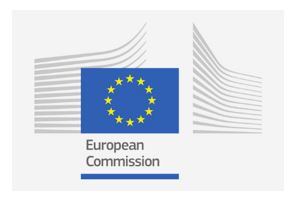


Experts, companies, business associations and public authorities met in the workshop “Common European data spaces for Smart Manufacturing” in Brussels on September 16th. The findings will serve as input for the European Commission for future policy making and legislation. Furthermore, they will help to understand to what extent the establishment of common European data spaces in Smart Manufacturing can support the objective of supporting data-driven innovation in the sector. Some of the questions discussed were:
There was a consensus among the workshop participants on the following points.
The value from data comes from cumulation, and from context-providing data together. Access to IoT data, data taxonomy and data portability should be standardized. The full potential of Industrial IoT data can only be seized if data is shared across the various stakeholders of the value chain, for example machine builders and machine operators in discrete manufacturing, or equipment builders and owner-operators of process plants. The sector would benefit from an agreed IIoT data governance framework, especially SMEs and midcaps would benefit from trusted IIoT data services through agreed principles or a formalized code of conduct.
To avoid monopolies, regional or global, legislation and/or stimulation is necessary. At the moment, there is a lack of overarching data governance in Europe. Standards regarding NDA’s and GPRD should be reviewed in the light of IoT data. Legal sandboxing may be required to experiment with new legislation. Legislation should give companies the possibility to protect themselves but should also give companies the possibility to reduce effort related to exchanging data. Technical measures need to complement legal enforcement. Traceability of data usage is likely to be necessary, through hyper-ledgers or other means.
Real-life use cases, such as the cooperation between multiple parties in design, operation and maintenance of process plants, may provide further insight into the needs for platforms, formulating and validating emerging standards as well as testing legal instruments, value creating networks. Applying machine learning and artificial intelligence to cross-company data can lead to superior results compared to use of company-internal data. Preferably, predictive analytics is executed in the cloud, whereas prescriptive analytics will probably be predominant at the Edge, unless the industry has the perception that platforms can be fully trusted.
There was no agreement on the question if a European sovereignty act was necessary. Some believe that private contracts may provide enough tools for the time being.
In the meantime, ARC recommends that industrial stakeholders familiarize themselves with the results of (former) projects that have made steps towards improved data sharing, use of industrial big data and artificial intelligence ,such as Big Data Value Association, BOOST4.0, FiWARE or international data spaces association (IDSA). On the IDSA site, a brief overview of their activities in other data-related projects is provided, which can provide additional insights into industrial data-related research, development and innovation.

